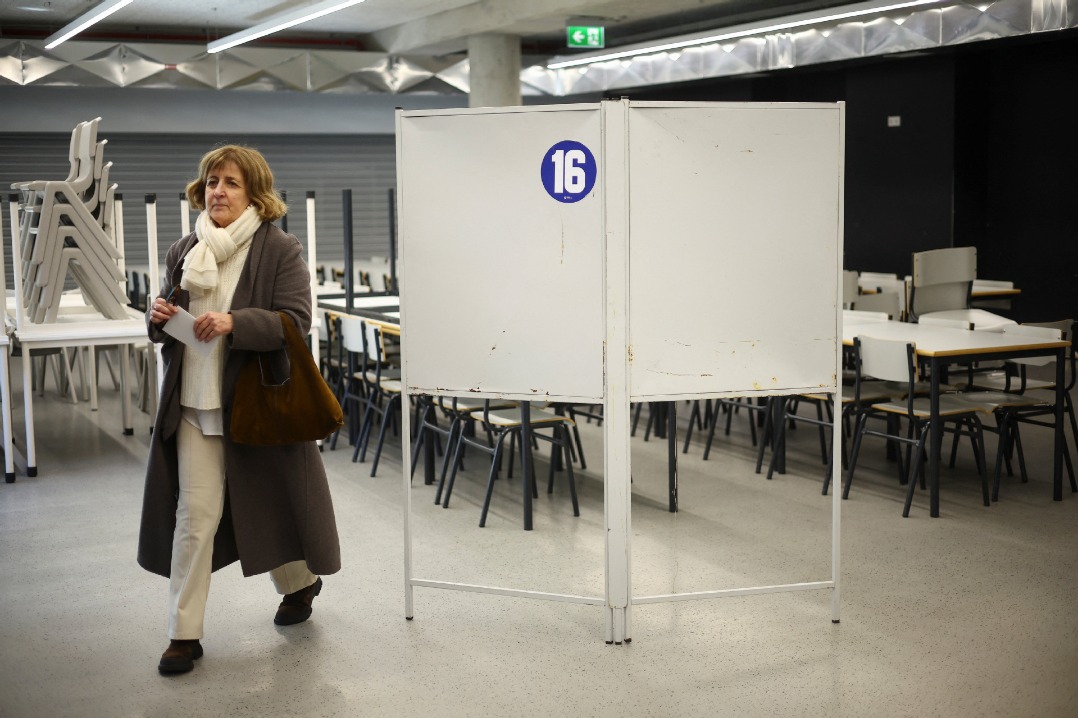Economist details structural issues behind trade deficit


China and the US need a fresh approach to get their economic relationship back on track, one built on mutual trust, a leading Wall Street expert on China said Tuesday.
Economist Stephen Roach, a former Morgan Stanley Asia chairman, said China and the US need to be "much more creative" and think of a different way to negotiate with each other. He spoke at a Vision China event hosted by China Daily and the Bank of China, at the Asia Society in New York.
Roach now serves as senior fellow at Yale University's Jackson Institute for Global Affairs and a senior lecturer at the Yale School of Management.
Roach made his remarks as another round of negotiations between the countries' top negotiators is scheduled for early October. They will be the first high-level talks after a new round of tariffs was recently imposed by both sides.
In previous, intermittent sessions over the 400-plus days of the US-China trade dispute, Chinese and US negotiators have built a structure for a potential trade deal. Roach believes that the framework falls short of a lasting resolution for the world's two largest economies.
The structure features three primary focuses — the bilateral trade imbalance, structural changes in China, and the framework for implementation.
"The deal features solving the trade deficit on a bilateral basis — you can't fix a multilateral problem of 102 deficits by solving it on a bilateral basis," Roach said. He was referring to the number of trade deficits the US has with all countries.
Instead of blaming China for the wide US-China trade deficit, which totaled a record $419 billion in goods, Roach said it should be attributed to internal, macroeconomic factors in the US, notably the low domestic savings rate.
Roach argued that the savings rate — 2.4 percent of GDP in 2018, according to the US Bureau of Economic Analysis — can help explain why there were bilateral deficits with 102 countries in 2018 that totaled $621 billion.
The shortfall in savings "is our fault, in large part, because of budget deficits. We don't want to admit that — it's easier for us to blame it on China," said Roach.
The American side's case against the structural issues of the Chinese economy — forced technology transfer, cybersecurity, intellectual property rights and state-sponsored industrial policy — lack solid evidence, argued Roach.
The Section 301 report conducted by the United States trade representative that high-lighted those issues were based on "circumstantial evidence at best", said Roach, and thus is not a "compellingly strong case" on the issues involved in the trade dispute. He also said the evidence wouldn't be enough in any US court.
Roach stressed that no one is winning the trade dispute, adding that the US "is actually more vulnerable to a trade shock today", with trade equaling almost 30 percent of GDP versus 11 percent in the 1930s, when the US economy took a hit after the Smoot-Hawley tariff act.
Roach doesn't expect a "hot war", but didn't rule out the possibility for a new cold war. He said that the US has less economic strength today in terms of GDP growth, savings rates and productivity growth.
He suggested the two countries build a lasting resolution that is different from the current framework.
That includes improving market access for companies from each country through bilateral investment treaties, each making macroeconomic adjustments to address the savings issue, developing a more sustainable dialogue system, and collaborating on global cybersecurity issues.
"We can do better — we must do better," Roach said.

































